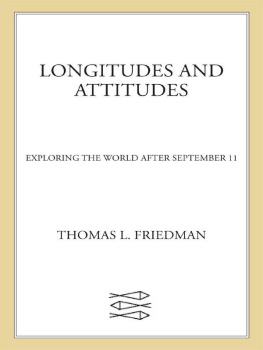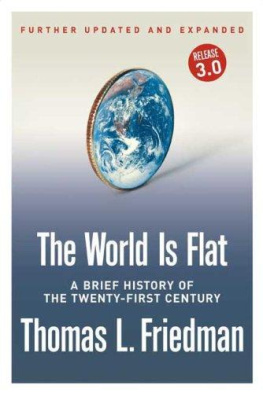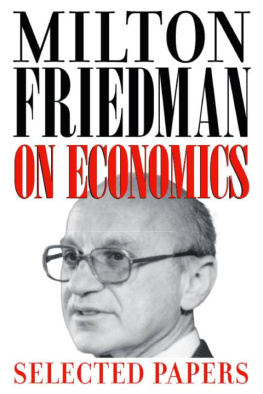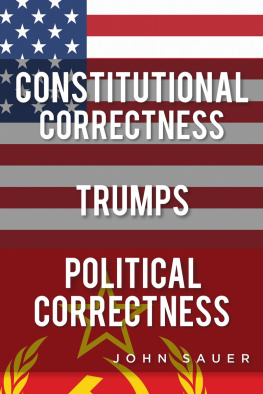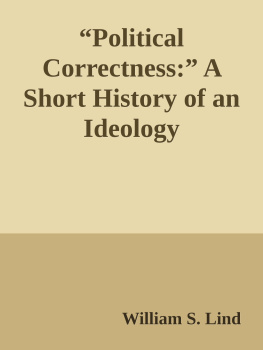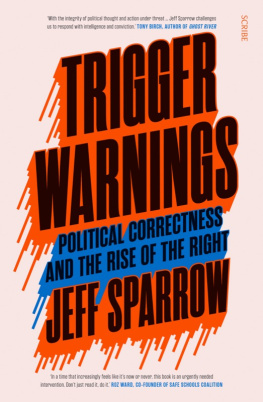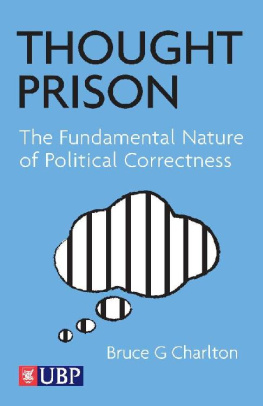Friedman - Political correctness and rising elites at the end of hegemony
Here you can read online Friedman - Political correctness and rising elites at the end of hegemony full text of the book (entire story) in english for free. Download pdf and epub, get meaning, cover and reviews about this ebook. year: 2019, publisher: Berghahn Books, genre: Politics. Description of the work, (preface) as well as reviews are available. Best literature library LitArk.com created for fans of good reading and offers a wide selection of genres:
Romance novel
Science fiction
Adventure
Detective
Science
History
Home and family
Prose
Art
Politics
Computer
Non-fiction
Religion
Business
Children
Humor
Choose a favorite category and find really read worthwhile books. Enjoy immersion in the world of imagination, feel the emotions of the characters or learn something new for yourself, make an fascinating discovery.

Political correctness and rising elites at the end of hegemony: summary, description and annotation
We offer to read an annotation, description, summary or preface (depends on what the author of the book "Political correctness and rising elites at the end of hegemony" wrote himself). If you haven't found the necessary information about the book — write in the comments, we will try to find it.
Friedman: author's other books
Who wrote Political correctness and rising elites at the end of hegemony? Find out the surname, the name of the author of the book and a list of all author's works by series.
Political correctness and rising elites at the end of hegemony — read online for free the complete book (whole text) full work
Below is the text of the book, divided by pages. System saving the place of the last page read, allows you to conveniently read the book "Political correctness and rising elites at the end of hegemony" online for free, without having to search again every time where you left off. Put a bookmark, and you can go to the page where you finished reading at any time.
Font size:
Interval:
Bookmark:
PC WORLDS
Loose Can(n)ons
Editor: Bruce Kapferer, Professor Emeritus of Anthropology, University of Bergen, and Honorary Professor, University College London
Loose Can(n)ons is a series dedicated to the challenging of established (fashionable or fast conventionalizing) perspectives in the social sciences and their cultural milieux. It is a space of contestation, even outrageous contestation, aimed at exposing academic and intellectual cant that is not unique to anthropology but can be found in any discipline. The radical fire of the series can potentially go in any direction and take any position, even against some of those cherished by its contributors.
Volume 1
Starry Nights
Critical Structural Realism in Anthropology
Stephen P. Reyna
Volume 2
PC Worlds
Political Correctness and Rising Elites at the End of Hegemony
Jonathan Friedman
Volume 3
Heading for the Scene of the Crash
The Cultural Analysis of America
Lee Drummond
Volume 4
On the Geopragmatics of Anthropological Identification
Allen Chun
| POLITICAL CORRECTNESS AND RISING ELITES AT THE END OF HEGEMONY |
Jonathan Friedman

First published in 2019 by
Berghahn Books
www.berghahnbooks.com
2019 by Jonathan Friedman
All rights reserved.
Except for the quotation of short passages for the purposes of criticism and review, no part of this book may be reproduced in any form or by any means, electronic or mechanical, including photocopying, recording, or any information storage and retrieval system now known or to be invented, without written permission of the publisher.
Library of Congress Cataloging-in-Publication Data
Names: Friedman, Jonathan, author.
Title: Political correctness and rising elites at the end of hegemony / Jonathan Friedman.
Description: New York : Berghahn Books, 2019. | Series: Loose can(n)ons ; volume 2 | Includes bibliographical references and index.
Identifiers: LCCN 2017020017 (print) | LCCN 2017038986 (ebook) | ISBN 9781785336737 (e-book) | ISBN 9781785336720 (hardback : alk. paper)
Subjects: LCSH: Political correctness. | Political anthropology. | Political correctnessSweden. | Political anthropologySweden. | SwedenEmigration and immigrationSocial aspects. | MulticulturalismSweden.
Classification: LCC HM1216 (ebook) | LCC HM1216 .F75 2017 (print) | DDC 306.09485dc23
LC record available at https://lccn.loc.gov/2017020017
British Library Cataloguing in Publication Data
A catalogue record for this book is available from the British Library
ISBN 978-1-78533-672-0 hardback
ISBN 978-1-78533-673-7 ebook
 Contents
Contents Figures
Figures Why Political Correctness?
Why Political Correctness?Oh no! Not another book on political correctness! The past decades have seen massive output on this subject, primarily from the United States but increasingly in Europe as well. Isnt the issue exhausted by now? The many people who hate the concept would like to think so. But this is not just another book taking sides for or against a particular manifestation of PC, as almost all publications have done until now. Nor is it about the American campus issues of feminist, post-feminist, and anti-racist politics, although the content of those debates is very much a focus of the analysis to follow. Written from a perspective on Sweden, it concerns incidents that occurred there in the late 1990s. At the time the notion of political correctness was hardly understood in Sweden, even in its American trappings, but it has since become a problem arousing the passions of many.
Although I take a clear position against what I define as political correctness, I emphatically do not define it in terms of its particular contemporary content, be it feminist or multiculturalist. Rather, I define it in structural terms, arguing that multiculturalism is part of a rising elite identity and that the discourse of political correctness has played a significant role in its establishment. The structural relation between the content of PC discourse and its formal properties is significant, but it is not an analytical relationthe one cannot be deduced from the other. Instead, the relation is one that connects the insecure identity of rising or falling elites with the need to establish or maintain dominant ideologies and a clear moral order. The moralization of the social world derives from this anxious situation, but the particular content of the ideology imposed can vary greatly, very much more so than envisioned by most of those who have participated in the PC debates.
The literature on PC has tended to conflate the content of PC with its form, so that the issues have been reduced to conservatives versus liberals, right versus left.the political content of political correctness, perhaps influenced by her own engagement in the concrete issues. Her analysis, however, does focus on the general issue of the political nature of language, a point that is made more vociferously by those directly inspired by Foucault (Choi and Murphy 1992). Cameron uses the expression I am not politically incorrect to show how the notion itself has changed, how it once was internal to the left and meant simply, I am committed to leftist/feminist causes, but not humorless or doctrinaire about it (15) but has now been refigured to mean that one was party to a new dichotomy defined by conservatives.
To say yes was to claim for yourself a definition constructed by conservatives for the express purpose of discrediting you; to say no was to place yourself among those conservatives. (16)
This change was orchestrated by the right itself, in an example of the politics of definition (16). While Cameron does not consider this to be part of the PC phenomenon itself, in our analysis the politics of definition is the very core of politically correct thinking. Her focus is on the politics of linguistic usageits role in political actionand from this perspective, it is progressives who are trying to change society for the better by attacking older, accepted categories and arguing for a political intervention into language itself. Since language influences thinking and action, its transformation can help bring forth new political realities. Thus the word African-American is an improvement over Black.
Someone who claims African American is a euphemism because it makes no reference to skin colour is implicitly asserting that a description of people by skin color is a value-neutral description. (28)
In associating PC with a particular political strategy, she falls into the same kinds of arguments that are used in the defense of PC. The above example is truly exemplary in this respect. The preference for the term African American assumes that reference to skin color is intrinsically less value-neutral than reference to geographical origin. And why should this be the case? As another chapter in the same collection (Appignanesi 2005) makes clear, in France the use of skin color terminology is not understood as demeaning (although a PC argument might tend to attribute this to unconscious racism). Any anthropologist ought to grasp that if there is anything that is relative, it is the connotations of semantic categories. The argument ends in a statement of the need to democratize language, to break down categories in a general strategy of giving voice to the formerly silenced. PC is primarily about a politics of semantic and thus political deconstruction.
Next pageFont size:
Interval:
Bookmark:
Similar books «Political correctness and rising elites at the end of hegemony»
Look at similar books to Political correctness and rising elites at the end of hegemony. We have selected literature similar in name and meaning in the hope of providing readers with more options to find new, interesting, not yet read works.
Discussion, reviews of the book Political correctness and rising elites at the end of hegemony and just readers' own opinions. Leave your comments, write what you think about the work, its meaning or the main characters. Specify what exactly you liked and what you didn't like, and why you think so.



